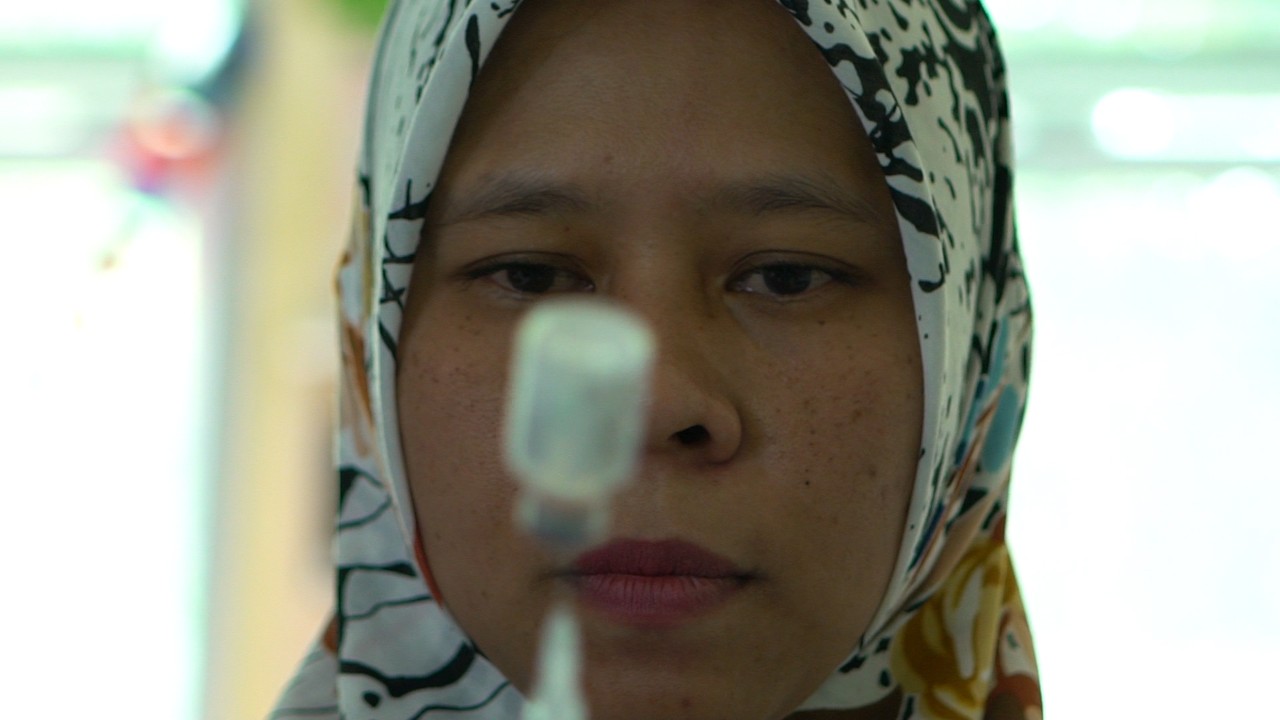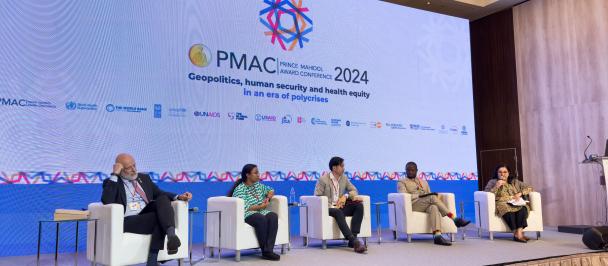For some vaccinators in the vast archipelagic nation of Indonesia, a day in their professional life may involve trekking through deep tropical valleys and jungles or crossing the open waters on rickety boats to isolated islands.
They are heeding the call of duty to vaccinate children against communicable deadly diseases.
Due to the COVID-19 pandemic, immunization drives have become more challenging in Indonesia, which according to the WHO is home to the world’s third-highest rates of meales. Restrictions on movement during the pandemic are making it more difficult for vaccinators to deliver the vaccines on time, conduct timely checks and monitor the efficacy of the vaccines vial – a key principle of the vaccine cold chain.
This is where the digitization comes in handy.
The United Nations Development Programme (UNDP) has introduced Sistem Monitoring Imunisasi Logistik secara Elektronik (SMILE), an innovative technological solution that aims to strengthen the immunization supply chain system in Indonesia. The system aims to ensures that safe and effective vaccines are available to all children, at all times. SMILE enables real-time visibility of vaccine cold chain logistics by digitizing stock supplies and storage temperature across vaccine cold chain points.
SMILE has been included in the Ministry of Health system since 2020. The Ministry aims to implement the system across all cold chain points, covering 10,000 facilities, as part of its five- year immunization programme. The mobile and web-based application is being implemented by the Ministry of Health and supported by UNDP. SMILE can strengthen the public health system, opening the window to achieving the health-related targets of the 2030 Agenda for Sustainable Development – specifically SDG 3: Good health and well-being for all.
SMILE consists of a mobile app for cold chain handlers, a web interface for data storage and a temperature logger that monitors storage temperature of vaccines to ensure that quality vaccines are delivered as required in a timely manner. Following its implementation in 2018, SMILE has focused on expanding reach to 600 Public Health Centers by 2021. Despite the pandemic, the role of technology has remained unhindered. To date, SMILE has achieved the following results:
Vaccine inventory digitized at 58 cold chain points in West Java and Banten, linking 2,723 Integrated Health Centers (Posyandu) and private practices. The digitization process is ongoing in six provinces in Riau, Banten, Jakarta Capital Region, West and Central Java and Gorontalo, totalling 11 districts and 560 cold chain points.
16,000 transactions per month on SMILE, showing that the app is well used by health care staff (Puskesmas). Data entry errors have also been reduced by 74 percent.
Vaccine stockout levels have been reduced by 70 percent and over-stocking by 47 percent. Vaccine stock waste has been reduced by more than 90 percent.
Over 200 vaccine handlers and health care workers have been trained on SMILE.
75 temperature loggers installed for remote temperature monitoring of cold chain equipment.
The planned expansion of SMILE comes as vaccine coverage has fallen due to the COVID-19 pandemic. According to a joint report by UNICEF and the Ministry of Health, vaccine coverage for children has been declining since the first cases of COVID-19 were reported in March 2020. According to the report, 84 percent of health facilities’ immunization services are disrupted by the COVID-19 outbreak. Some have been interrupted partially or forced to shut down immunization services completely.
With improved vaccine cold chain systems, it is hoped that by the time the SMILE system is adopted nation-wide, vaccinators across Indonesia will have one less thing to worry about as they navigate the vast breadth of the archipelago with portable cold storages, to leave no child behind.

 Locations
Locations





